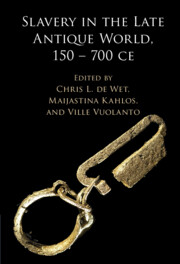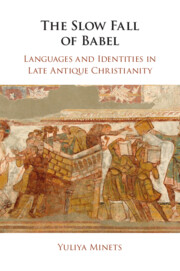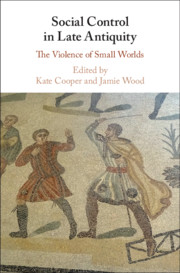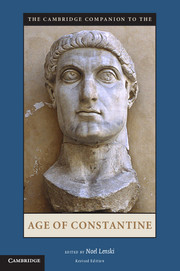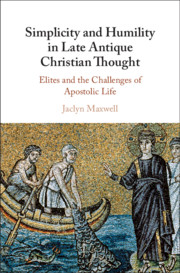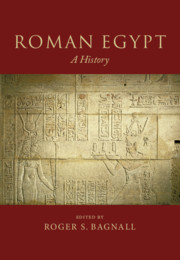Slavery in the Late Antique World, 150 – 700 CE
- Editors:
- Chris L. de Wet, University of South Africa
- Maijastina Kahlos, University of Helsinki
- Ville Vuolanto, University of Tampere, Finland
- Date Published: February 2022
- availability: Not yet published - available from October 2024
- format: Hardback
- isbn: 9781108476225
$
120.00
Hardback
Other available formats:
Paperback, eBook
Looking for an inspection copy?
This title is not currently available for inspection. However, if you are interested in the title for your course we can consider offering an inspection copy. To register your interest please contact [email protected] providing details of the course you are teaching.
-
Slavery in the Late Antique World, 150 – 700 CE investigates the ideological, moral, cultural, and symbolic aspects of slavery, as well the living conditions of slaves in the Mediterranean basin and Europe during a period of profound transformation. It focuses on socially marginal areas and individuals on an unprecedented scale. Written by an international team of scholars, the volume establishes that late ancient slavery is a complex and polymorphous phenomenon, one that was conditioned by culture and geography. Rejecting preconceived ideas about slavery as static and without regional variation, it offers focused case studies spanning the late ancient period. They provide in-depth analyses of authors and works, and consider a range of factors relevant to the practice of slavery in specific geographical locations. Using comparative and methodologically innovative approaches, this book revisits and questions established assumptions about late ancient slavery. It also enables fresh insights into one of humanity's most tragic institutions.
Read more- Provides complex and nuanced understanding of slavery in Late Antiquity
- Analyses the different discourses of slavery (i.e. the use of metaphors, rhetoric, etc.)
- Offers case studies of slavery in specific geographical, ethnic and religious contexts
Customer reviews
Not yet reviewed
Be the first to review
Review was not posted due to profanity
×Product details
- Date Published: February 2022
- format: Hardback
- isbn: 9781108476225
- length: 400 pages
- dimensions: 236 x 157 x 29 mm
- weight: 0.721kg
- availability: Not yet published - available from October 2024
Table of Contents
I. Moral and Symbolic Values of Slavery:
1. Masters and slaves in early Christian discourse Peter J. J. Botha
2. Slavery and religion in Late Antiquity: their relation to ascetism and justice in Christianity and Judaism Ilaria Ramelli
3. (II) Legal freedom: Chris as liberator from satanic debt bondage in Greek literature of Late Antiquity Arkadiy Avdokhin
4. Late Roman ideas of ethnicity and enslavement Maijastina Kahlos
II. Slavery, Cultural Discourses, and Identity:
5. Slavery in Euphemia and the Goth Chris L. De Wet
6. What was Jewish slavery in Late Antiquity? Catherine Hezser
7. Divining slavery in Late Ancient Egypt: doulology in the monastic works of Paul of Tamma and Shenoute Christine Luckritz Marquis
8. Rural slavery in Late Roman Gaul: literary genres, theoretical frames and narratives Uiran Gebara da Silva
III. Slavery, Social History, and the Papyrological and Epigraphical Sources:
9. Slaves in the sixth century Palestine in the light of papyrological evidence Marja Vierros
10. Child slaves in Roman Egypt: experiences from the papyri April Pudsey and Ville Vuolanto
11. Late antique slavery in epigraphic evidence Mariana Bodnaruk
IV. Social and Religious Histories of Slavery on the Borders of the Empire and Beyond:
12. Slavery among the Visigoths Noel Lenski
13. Sinner, slave, bishop, saint: the social and religious vicissitudes of St. Patrick Judith Evans Grubbs
14. Slave boys in paradise? The Evidence of the Quary and its later exegetes Ilkka Lindstedt.
Sorry, this resource is locked
Please register or sign in to request access. If you are having problems accessing these resources please email [email protected]
Register Sign in» Proceed
You are now leaving the Cambridge University Press website. Your eBook purchase and download will be completed by our partner www.ebooks.com. Please see the permission section of the www.ebooks.com catalogue page for details of the print & copy limits on our eBooks.
Continue ×Are you sure you want to delete your account?
This cannot be undone.
Thank you for your feedback which will help us improve our service.
If you requested a response, we will make sure to get back to you shortly.
×
